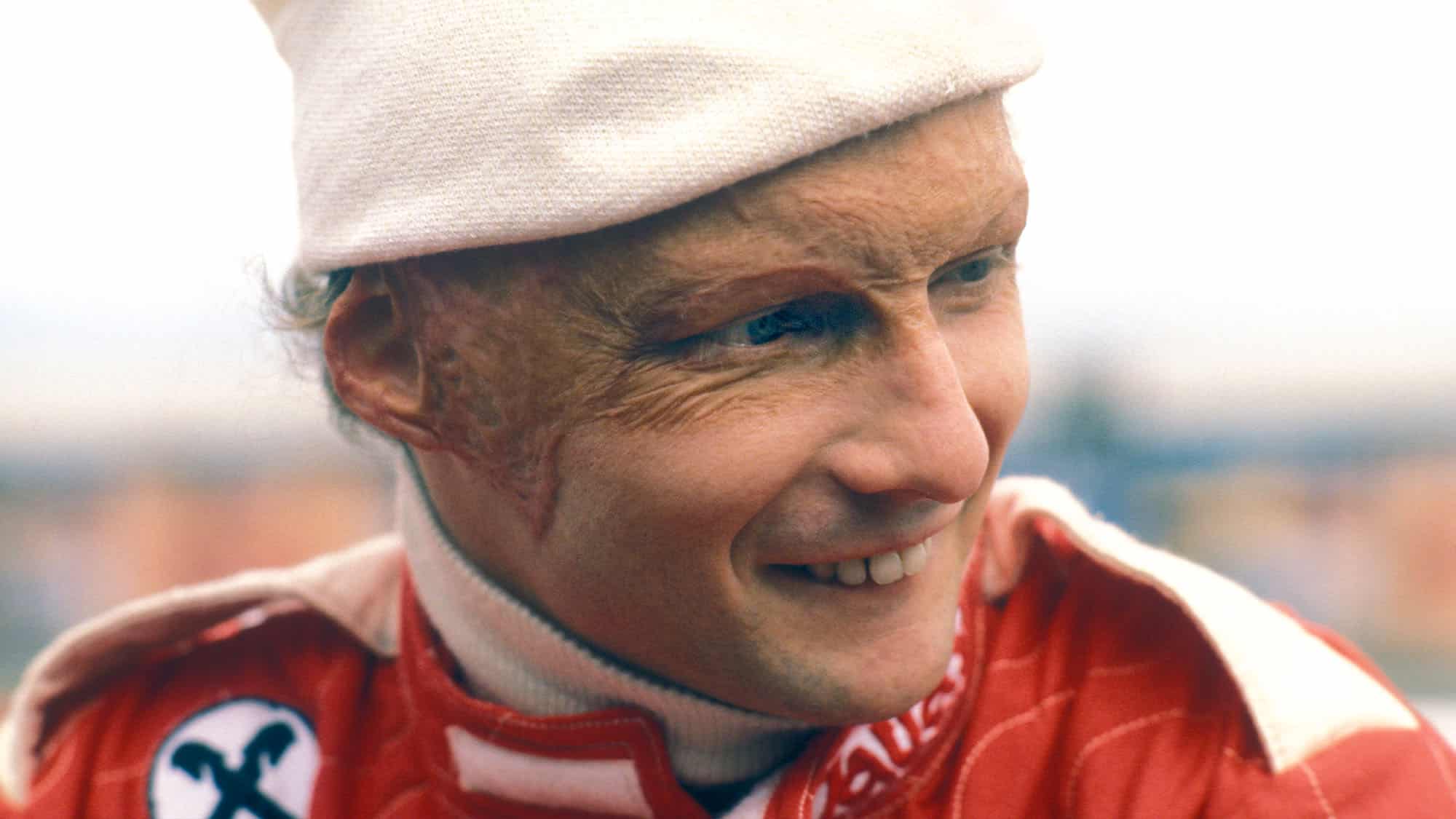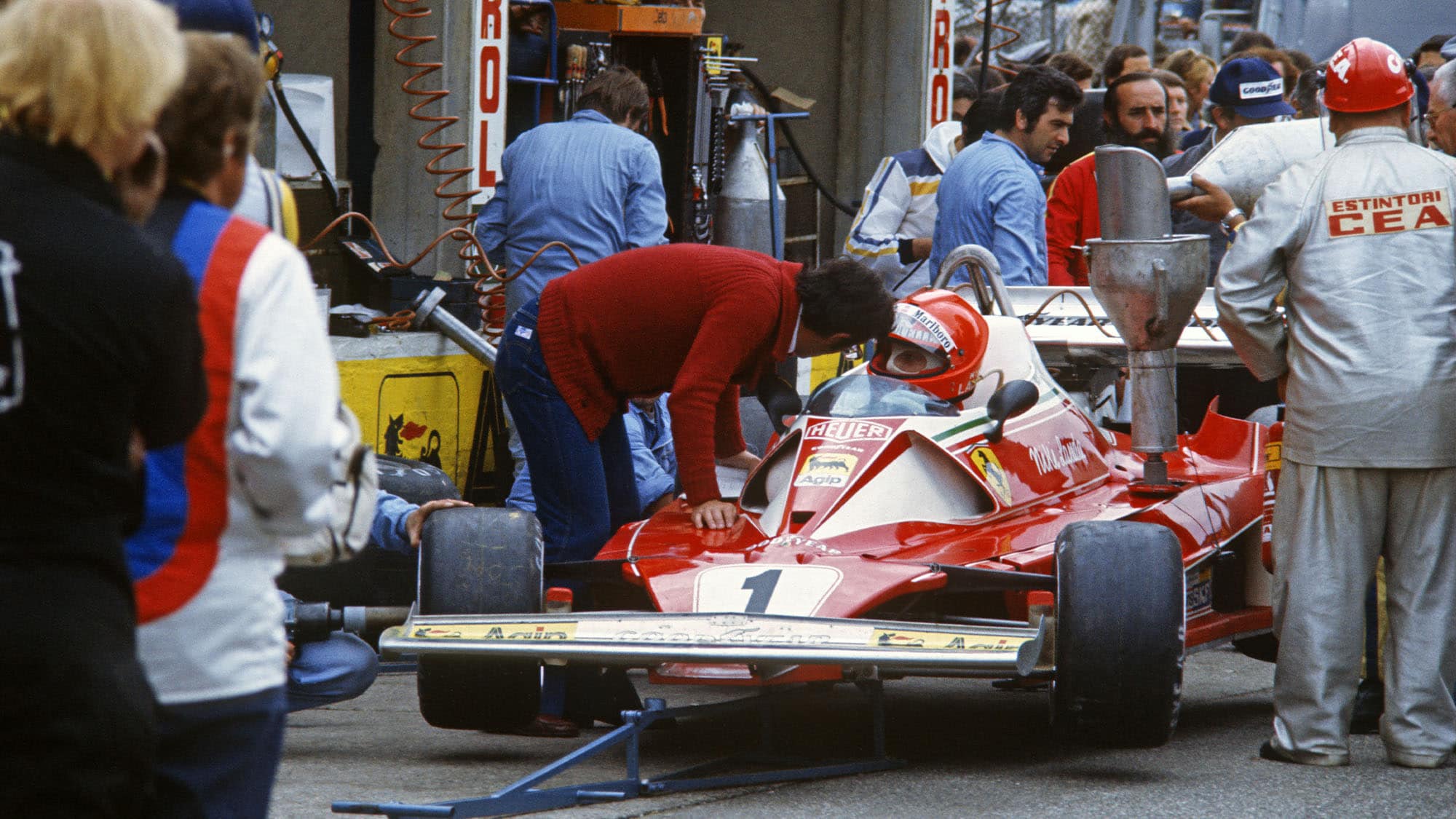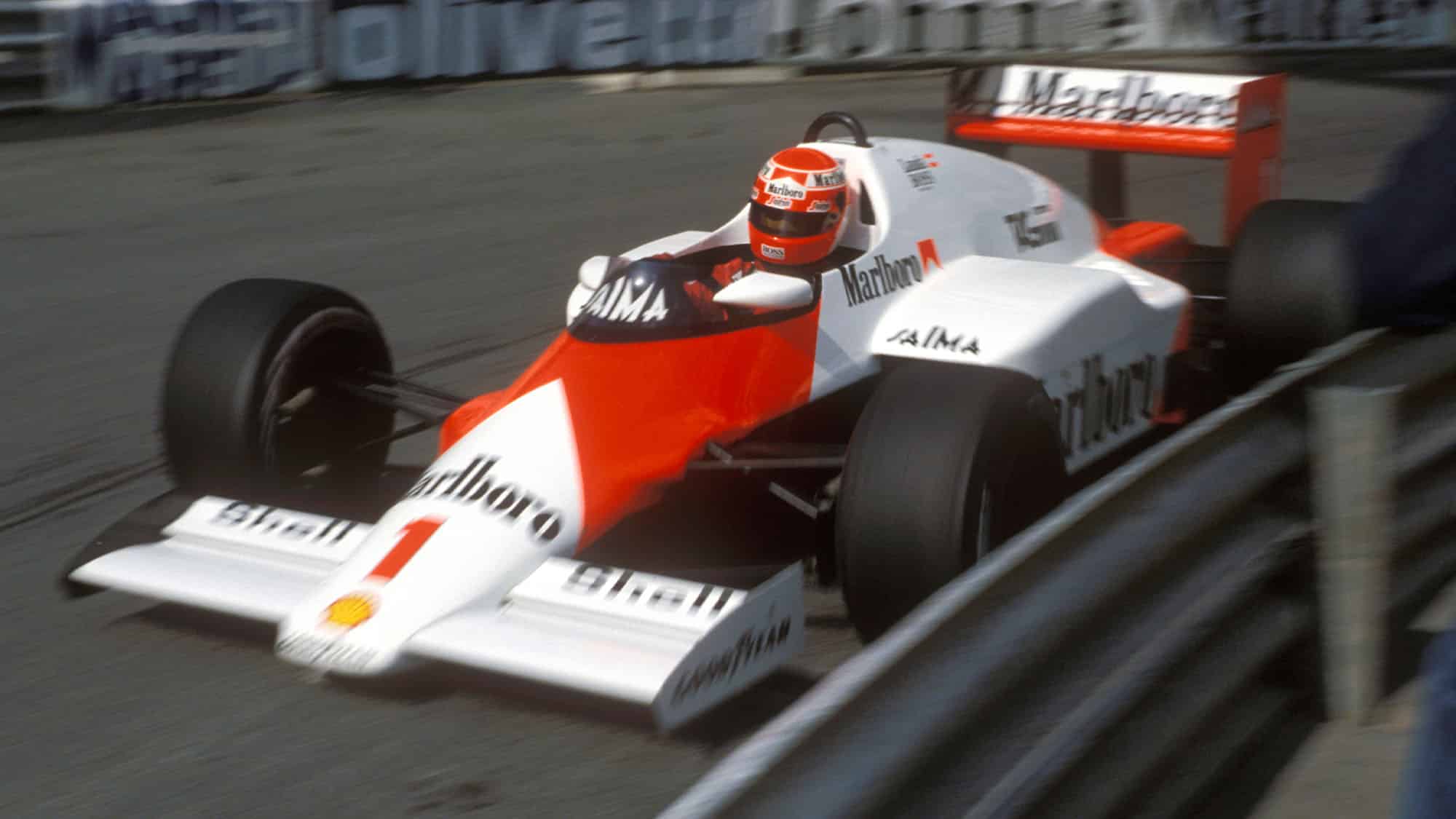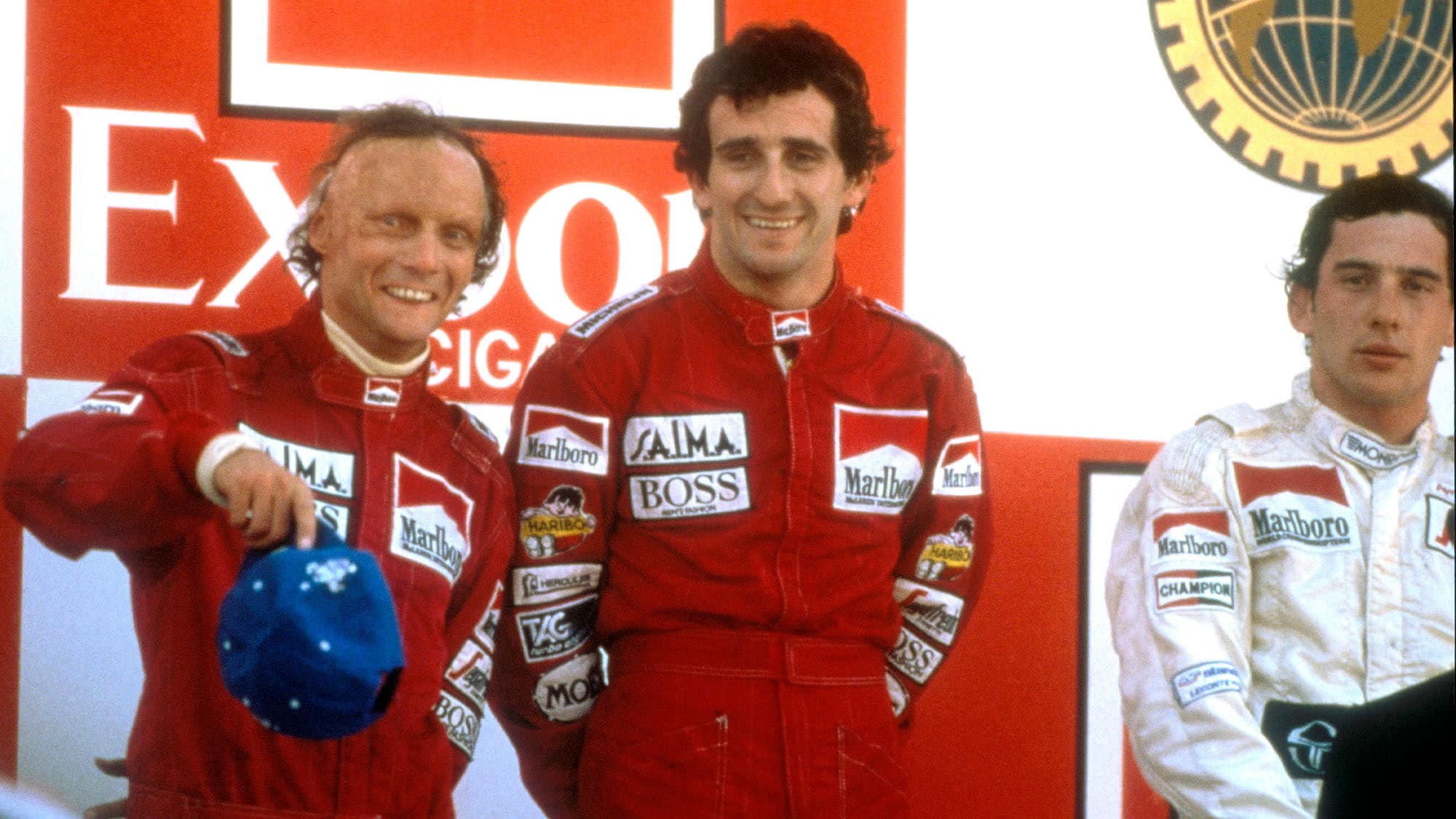“You watch at the first corner? You remember the old corner there, how it used to be?” He does not wait for a reply. “That was balls-out; totally balls-out. I always came to that corner thinking ‘this has to be flat’. Then I’d lift, try again, lift again, then next lap, hold my breath and take it flat: f**k, I’ve done it! You could make up time there going for pole, but if you didn’t have the perfect car it was frightening. Get it wrong and you were going to kill yourself; have the biggest crash of your life.” I remind him that he had one of those, but we’re not going over all that again. He observes that he’s pleased to hear that.
In his book Formula One: The Art and Technicalities of Grand Prix Driving Lauda described the old Curvas 1 and 2 at Interlagos as a Formula 1 car drifting flat out in fifth gear. Those were the days; but back to more contemporary matters.
The Austrian knows a great deal about racing – and winning – for Ferrari in particular. He is one of very few drivers to have got the best out of the Italian team. And he’s keen to shed some light on the Schumacher years, how they produced such spectacular results. How the Scuderia will never repeat the feat, not with Räikkönen, nor with anyone else for that matter.
“What he did at Ferrari cannot happen again,” he asserts in that unique Lauda style. It is stated as fact, no messing about. Much of my time with Niki is conducted in this rapid-fire style, straight verbal punches delivered with conviction and often with that wolfish smile.
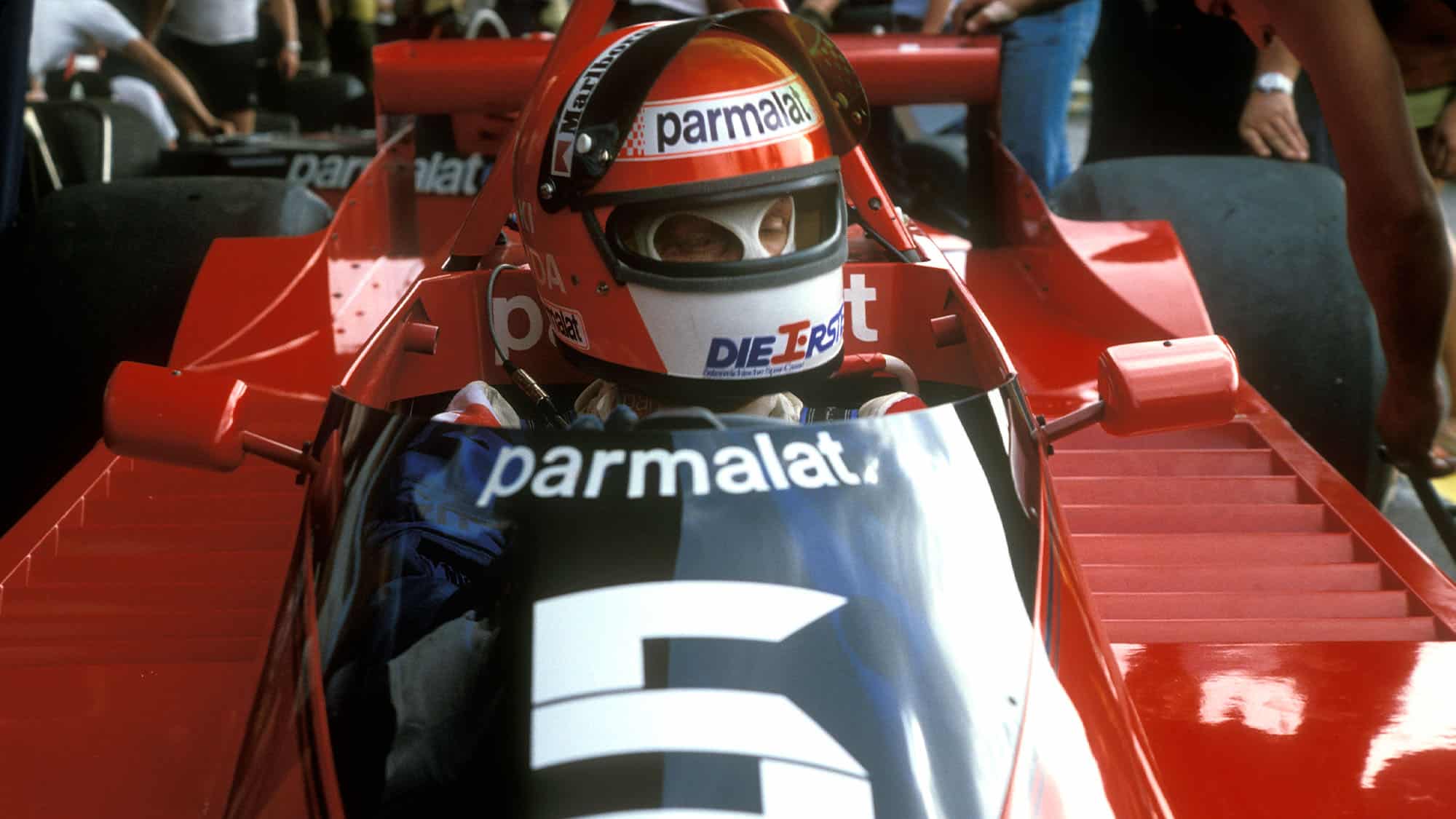
Lauda: not a fan car enthusiast
Grand Prix Photo
“It was possible for Schumacher because he came before all the gadgets, all the computers and clever technology. When he got there he had the chance to build a team around him, put in the human side and make it a team that worked for him. This became a team working for one driver, one car. Other teams, the cars are competing with each other, as usual. Ross Brawn was a big factor, joining him from Benetton, and Jean Todt coming in to run the team, making it less emotional, less Italian. Ferrari now is much less pasta and Chianti and more hard work and discipline.”
Slowing down a touch, he explains that in recent years a driver has signed for a team, become part of a big organisation and gone along with the staff handbook, the style manual. “Now a team is good, or bad, and a driver won’t change that,” he says, “but Schumacher was able in those days to make it all work for him and he was always number one in that team. Always.”
The staccato begins again, Lauda shooting his views in a volley of clipped vowels and consonants, some of which have been deleted. “Look, all that s**t with Alonso saying he was out in the cold at Renault. What he meant was that he wanted the whole team to focus on him and on his championship. But Renault is a big company, a pyramid of management, and it can’t happen that way, not like Schumacher with Ferrari.”
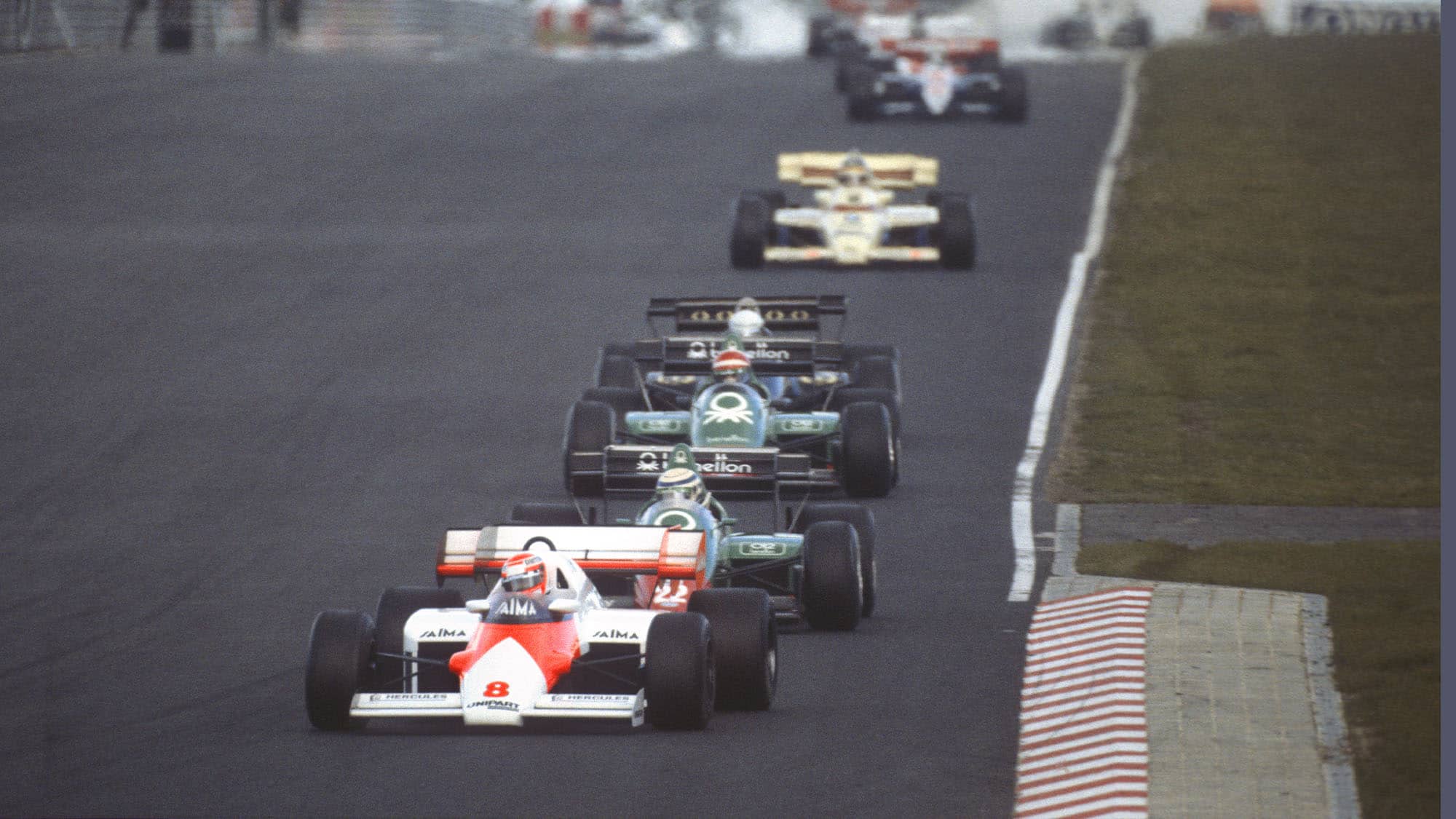
Leading a pack with McLaren in ’84
Grand Prix Photo
He knows about how companies operate, having started two airlines, and 21st century Formula 1 is very big business involving some huge global corporations.
“These big teams are structured like big companies, lots of managers, all of them with their own responsibilities. Now, a driver comes in, learns how to use these people and performs as best he can,” asserts Lauda. “This is how to win, to use the people to make it all work for you within the big structure.” He excelled at this himself, most notably at Ferrari where he manipulated the team around him.
